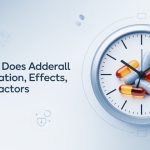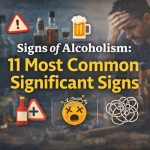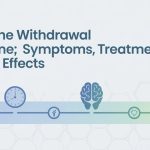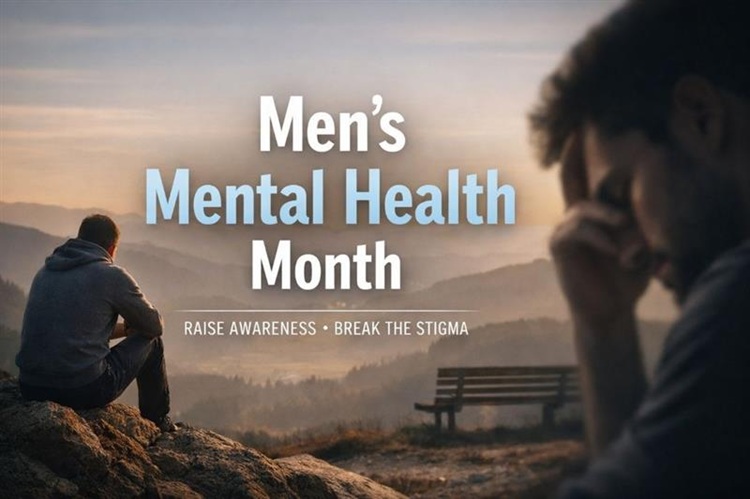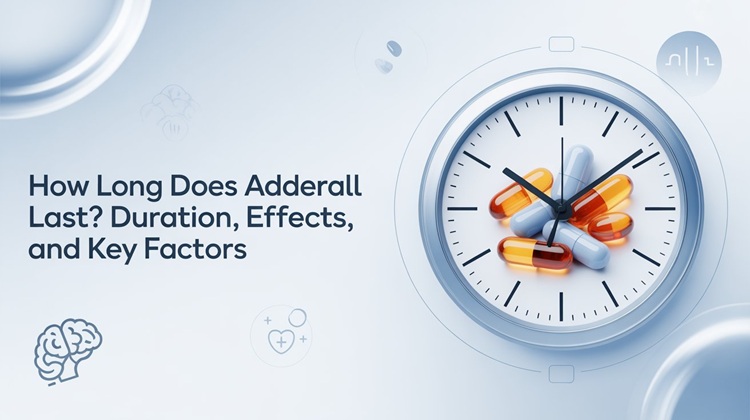Tramadol is a drug used to treat pain; it is most often prescribed to treat moderate and moderately severe types of pain. Although it is believed in some cases to be inherently less addictive than other opioids, this is not remotely the entire picture. The question always arises for many people: Is tramadol addictive? The fact is that the issue of tramadol addiction is severe and expanding, particularly in instances when the drug is abused or used over a long period.
Becoming familiar with the uses, warning signs, and dangers of tramadol dependence can assist you or your loved one in securing the appropriate assistance before it turns into a life-threatening condition.
What is Tramadol Used For?
Tramadol is an opioid analgesic whose mechanism of action is to alter the sensitivity of your brain and nervous system to pain. It is usually medically prescribed by doctors against:
- Post-surgical pain
- Long-term types of pain like that of arthritis or back pain
- Injury pains
- In some instances it could be fibromyalgia or nerve pain
Since tramadol is both an opioid and has an antidepressant-like effect, it alters the brain chemicals including serotonin and norepinephrine. Although such a combination can make it effective in pain management, it is one of the contributing factors that have given rise to the tramadol addiction risk.
Is Tramadol Addictive?
The issue of tramadol, is it addictive, is one that cuts through the air of healthcare providers. The response here is yes.
Whereas tramadol was initially introduced as a drug with lower addiction at one time, studies and patient reports revealed that tramadol is an addictive compound with abuse. The addiction may also occur on supervised use of tramadol and when used over a prolonged period.
Tramadol is addictive in that it is based upon two major aspects:
- Opioid Effect– It attaches itself to opioid brain receptors, and it causes pain relief together with euphoria.
- Mood-Altering Effect – It interacts with neurotransmitters such as serotonin that may help in enhancing temper but induce a craving on discontinuation.
Therefore, in case you are asking yourself a question, is the drug tramadol addictive? — the answer is unquestionably, yes.
100% Confidential Support is Available 24/7
No matter what you’re going through, you’re not alone. Our dedicated team is here to provide a safe, judgment-free space where you can talk openly and honestly. Whether you need emotional support, resources, or just someone to listen.
We’re here for you—completely confidential and always respectful of your privacy. Call us today!
Dangers of Tramadol Use
Although tramadol is considered to be less powerful and “softer” compared to other opioids, it presents its risks, particularly in case it is abused. These hazards are, among others:
- Drug dependence and addiction: Even with prescription dosages, there would be long-term physical and psychological dependence under such conditions.
- Seizure: There is a risk of an increase in seizures in bigger doses or with some medications.
- Serotonin syndrome: A severe disorder arising as a result of an overload of serotonin, which can prove fatal.
- Respiratory depression: Depressed breathing, slowed or halted when combined with alcohol or other depressants.
- Overdose: Doses should not be too large because it can be lethal quickly.
Comprehending the addictiveness of tramadol will prevent its misuse and prevent such harmful effects.

Contact Palm Coast Treatment Solutions
Battling with Drug and Alcohol Addition? Remember, you are not alone and we are here to help you!
Signs of Tramadol Addiction
It is possible to save lives by identifying the warning signs at an early stage. Some of the popular symptoms of tramadol addiction include:
- Taking more than one is prescribed
- Drying up the prescription early
- The doctor shopper, to obtain more tramadol
- Desires and fascinations concerning the drug
- Effects due to missing a dose: Withdrawal symptoms
- Irritability or mood swings, or depression
- Abandoning work, school or relationships
- Use even when the health or personal life is damaged
When you or an acquaintance start exhibiting these behaviors, it is possible that a professional aid is needed.
Overcome Addiction with Palm Coast Treatment Solutions.
Book an appointment.
Tramadol Overdose Symptoms
Tramadol overdose may occur accidentally or can occur with the desired effort and it needs to be treated by medical workers. This may come along with symptoms like:
- Delirium or coma
- Weak or discontinuous breathing
- Seizures
- Nails or Lips that are bluish (an indication of low oxygen)
- Blood pressure is quite low
- Pinpoint pupils
- Loss of consciousness
When you suspect that there has been an overdose, call us as soon as possible. A tramadol overdose can turn life-threatening without emergency care.
Tramadol Withdrawal
When physically addicted to tramadol, one may experience withdrawal symptoms when the medication is stopped. Withdrawal can be both opioid related and antidepressant like and hence very uncomfortable.
- The more frequent tramadol withdrawal symptoms comprise:
- Fear and nervousness
- Chills and sweating
- Muscle aches
- Insomnia
- Nausea, vomiting or diarrhoea
- Clear eyes and watering nose
- Depression and mood swings
Since the detox process may be severe and hazardous, medical detox is usually advised as a precaution and pain relief strategy.
Overcome Addiction with Palm Coast Treatment Solutions.
Book an appointment.
Tramadol Addiction Treatment
The need to identify treatment solutions that can support the rehab process is another factor that we embrace at Palm Coast Treatment Solutions when dealing with tramadol addicts. We plan to treat the physical dependence and the causative factors of addiction with our treatment programs.
These services of ours can comprise
- Detox through medical treatment to ensure safe withdrawal. Treatment to eliminate the physical symptoms
- Individual therapy to solve mental health needs
- Peer group counseling
- Relationship restoration by family therapy
- Treatment of co-occurring mental illnesses through dual diagnosis
- Planning of aftercare to aid the long-term recovery
It can be overcome. Through proper care, your life could be brought back on track, and tramadol addiction can be broken mechanically.

Take the First Step Toward Recovery
When it comes to tramadol addiction, you can be helped immediately, either as an addict or on behalf of someone you know and love. Stop waiting until the problem becomes life-threatening- the sooner the treatment, the more beneficial the results.
There is still time to prevent or fight addiction. Call an understanding admissions specialist at Palm Coast Treatment Solutions now at (386) 284-4151. We can assist you in designing a customized recovery plan and assist you on a long-term basis in your journey to overcoming addiction.
Overcome Addiction with Palm Coast Treatment Solutions.
Book an appointment.
Frequently Asked Questions (FAQs)
1. What happens when you are addicted to tramadol?
Once you have an addiction to tramadol, your brain and body become reliant on it to work normally. You can feel quite passionate, withdrawal effects when you quit, and feel out of control of your usage.
2. What happens if you take tramadol every day?
Even the daily usage of tramadol entails developing physical dependence, exertion (requiring an increasing dose to achieve the same effect), and ultimately addiction. It also has the potential to cause severe adverse events such as seizures and serotonin syndrome.
3. What is the most addictive pain reliever?
Some of the most addictive pain relievers include opioid medications, which include oxycodone, hydrocodone, and fentanyl. Although tramadol is relatively considered as a less potent drug, it can even lead to addiction.
4. Why is tramadol a bad drug?
Tramadol may be dangerous as it has not only the effect of opiates but also changes the chemistry of the brain. This combination poses more risk of developing seizures, serotonin syndrome, and addiction, especially when it is misused.
5. Why don’t doctors like tramadol?
Most physicians are reluctant to prescribe tramadol since they tend to underestimate its risks. It is a drug that should be carefully monitored in terms of misuse, pharmacological risks and the risk of addiction.







